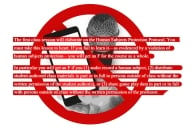You have /5 articles left.
Sign up for a free account or log in.
Religion is the most popular theme studied by historians, according to a new survey of members of the American Historical Association.
The survey asks members to name three themes of interest to their work, so many of the historians who picked religion may not have that topic as a sole focus. But the new position for religion in history is a dramatic change: Until this year, culture had been the top selection in surveys over the last 15 years.
The data suggest that those coming into the profession are more likely than their elders to have a focus on religion. According to the AHA, more than half of those who selected religion as one of their key themes received their highest degree since 2000. And almost 40 percent of the AHA members who picked the theme either were graduate students, assistant professors or associate professors -- categories that make up only 33 percent of the association's members.
The association released an analysis of the survey Friday, written by Robert Townsend, the association's assistant director for research and publications.
Job data from the association also provide evidence that religion's presence among history departments is likely to grow. Last year, 10 percent of jobs and fellowships posted with the association included religion among the specializations of interest cited in the listings. That compares to 2 percent a decade ago.
The association surveyed some of its members working in religion to ask for theories about the revival of interest and heard four common explanations:
- Interest in the rise of "more activist (and in some cases 'militant') forms of religion."
- An "extension of the methods and interests of social and cultural history."
- The impact of the "historical turn" in other disciplines, including religious studies.
- Increased student demand for courses on the subject.
Jon Butler, a professor of history, religious studies and American studies at Yale University, is quoted in the AHA report as saying: "I think the category has become more popular because historians realize that the world is aflame with faith, yet our traditional ways of dealing with modern history especially can’t explain how or why. In short, the ‘secularization thesis’ appears to have failed and so we need to find ways to explain how and why it didn’t die as so much written history suggests.
In an interview with Inside Higher Ed, Jeffrey S. Gurock, a professor of Jewish history at Yeshiva University, said that the growth of religious history may well be a reflection of the longstanding academic interest in cultural history because the fields are so closely linked. Gurock, head of the Academic Council of the American Jewish Historical Society, is the author of books about the history of Orthodox Judaism in the United States, and on the ties of American Jews to athletics.
Gurock said that historians' interest in religion isn't just about "religion for good or not so good," but simply arises out of the conviction that religion is "impactful on people's lives," such that its role in history is "more salient than ever before."
Shifts in Interests
The interests identified by the historians also show gains for some traditional areas of study -- political and military history, for example -- that some critics frequently accuse the profession of ignoring. And while diplomatic history -- another such field -- did not show growth, it was flat, in contrast to recent declines. Social history, meanwhile, continued a long decline as an area of interest.
Proportion of Historians Working in Selected Areas
| 1992 | 1999 | 2004 | 2009 | |
| African American | 3.5% | 4.2% | 4.8% | 4.9% |
| Cultural | 6.6% | 7.9% | 8.2% | 7.5% |
| Diplomatic/ International | 8.4% | 4.1% | 3.8% | 3.8% |
| Gender | 0.0% | 4.3% | 4.5% | 4.9% |
| Intellectual | 9.0% | 6.2% | 5.8% | 5.3% |
| Military | 6.3% | 4.0% | 3.7% | 3.8% |
| Political | 5.6% | 4.1% | 4.3% | 4.6% |
| Religion | 4.6% | 6.9% | 7.2% | 7.7% |
| Science and Technology | 5.5% | 3.7% | 3.4% | 3.2% |
| Social | 14.5% | 5.2% | 4.1% | 3.5% |
| Women | 11.2% | 8.6% | 7.2% | 6.4% |








